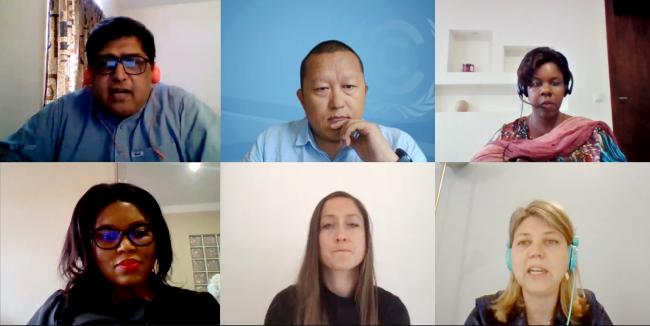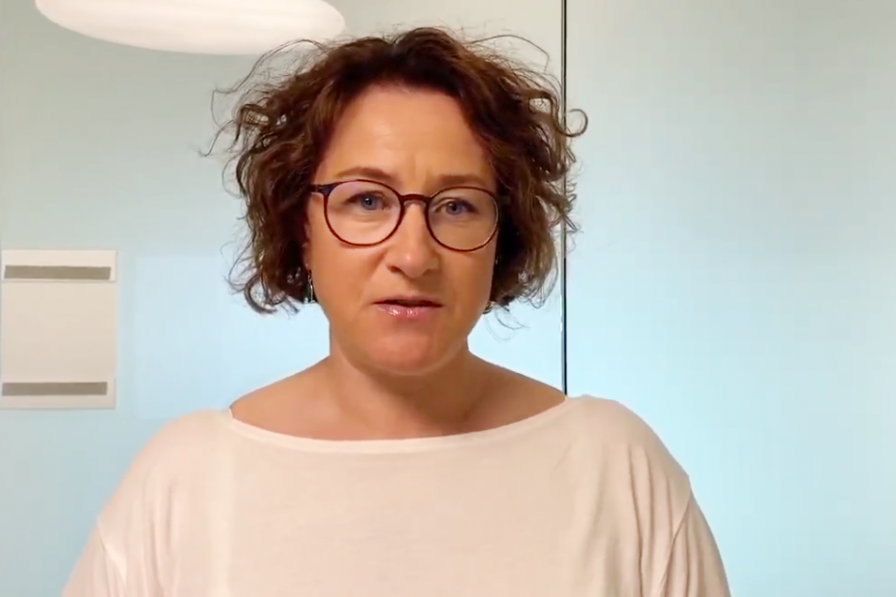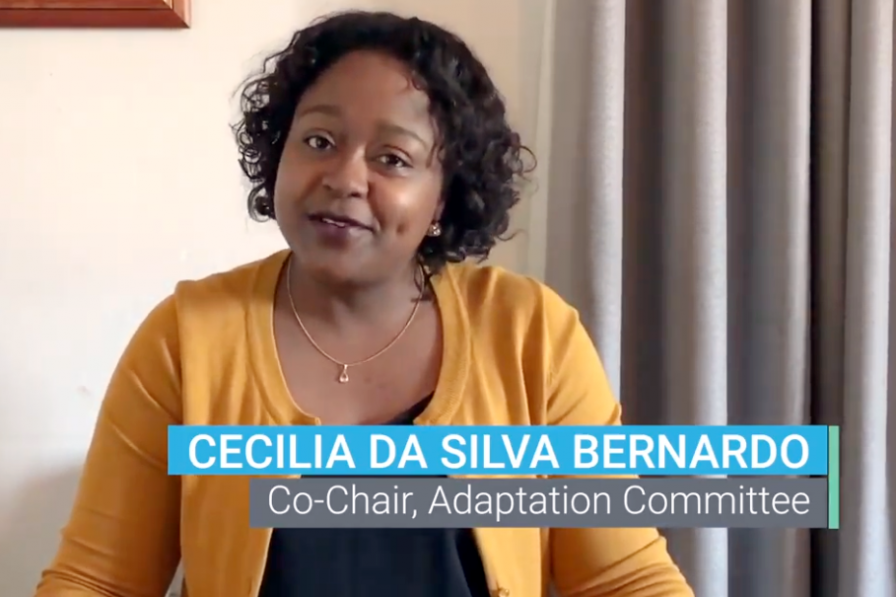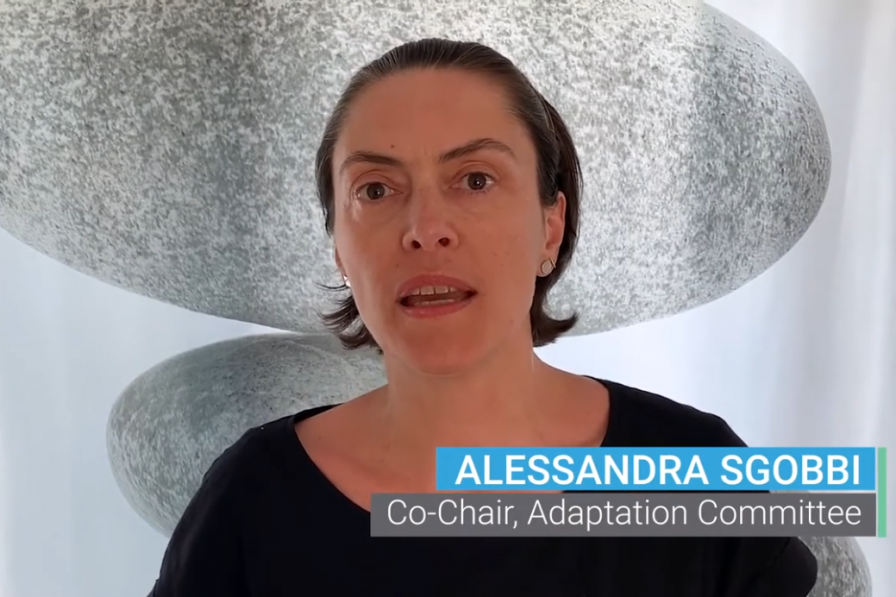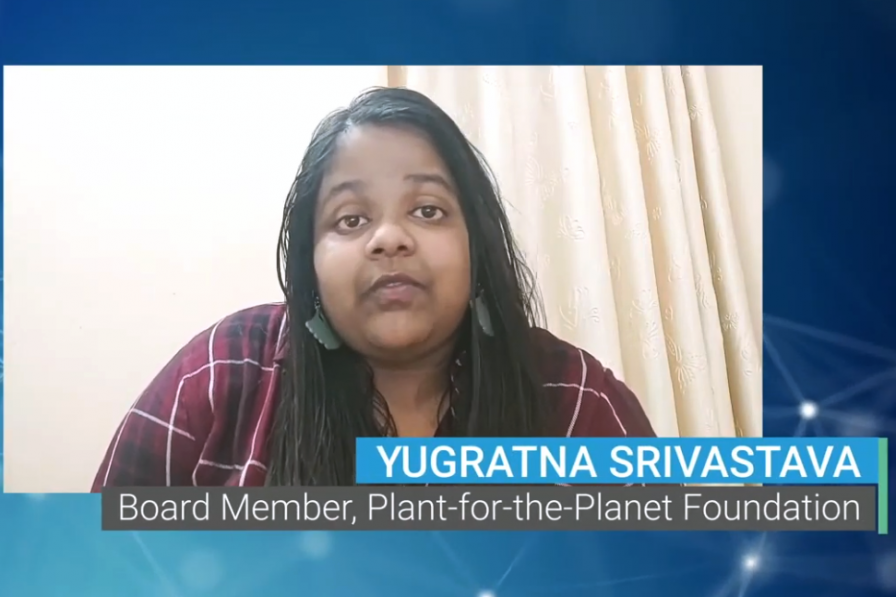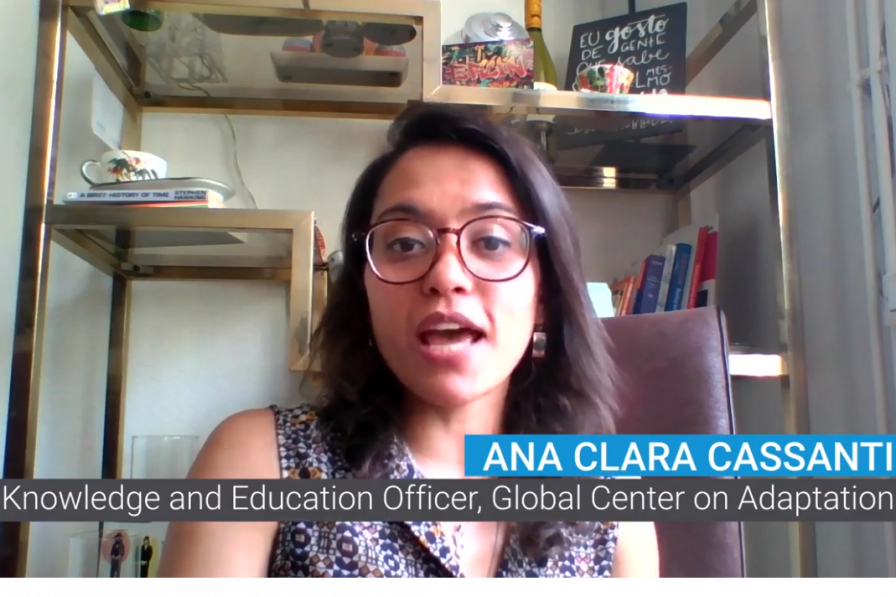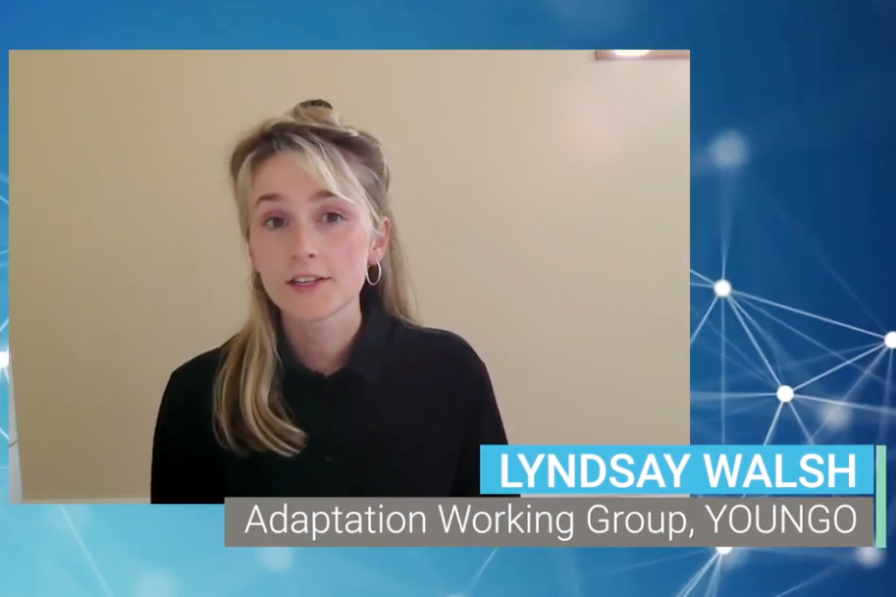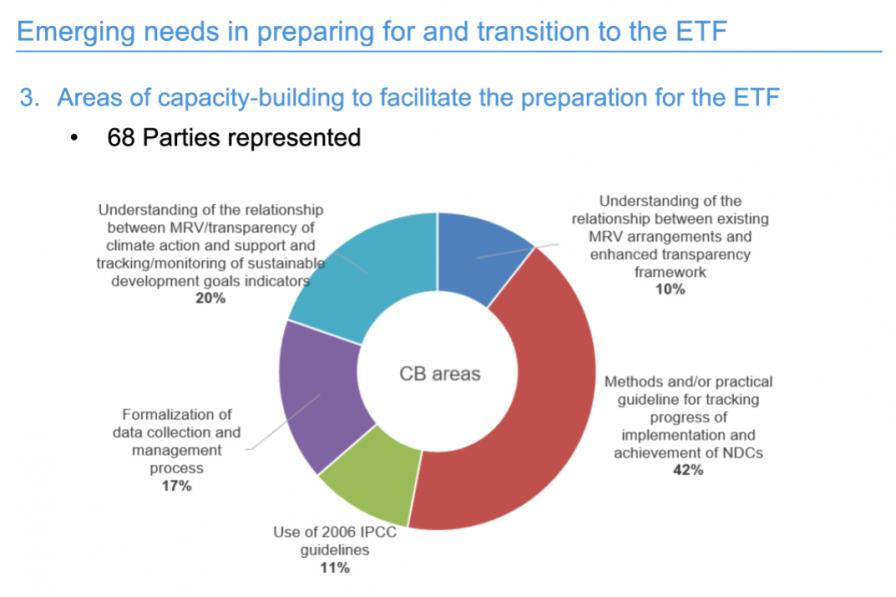The June Momentum for Climate Change, a series of virtual events organized by the UN Framework Convention on Climate Change (UNFCCC) Secretariat, continued Friday.
Technical Examination Process on Adaptation Launch 2020
Opening the launch event for the 2020 Technical Examination Process on Adaptation (TEP-A), Subsidiary Body for Scientific and Technological Advice (SBSTA) Chair Tosi Mpanu-Mpanu (Democratic Republic of the Congo) and Subsidiary Body for Implementation (SBI) Chair Marianne Karlsen (Norway) said the TEP-A will offer a space for continuing conversations on adaptation over the coming months, and will focus on “education and public training, public participation, and youth to enhance adaptation action.”
Adaptation Committee Co-Chairs Cecilia da Silva Bernardo (Angola) and Alessandra Sgobbi (Italy) explained the process is intended to engage multiple stakeholders and the 2020 topic is a response to the unprecedented global wave of youth and public mobilization for climate action and recognition of their role in contributing to adaptation. They announced this virtual process will comprise multiple modalities, including panel discussions, workshops, policy briefs, and a case competition.
Youth representatives Yugratna Srivastava, Plant-for-the-Planet Foundation, Ana Clara Cassanti, Global Center on Adaptation, and Lyndsay Walsh, YOUNGO Adaptation Working Group, stressed the climate crisis is a matter of intergenerational justice, with those contributing the least suffering the most, and called for fostering the resilience of the most vulnerable in line with a “just, green recovery post-COVID-19,” and engaging youth to meet the needs of future generations.
9th Durban Forum on Capacity-building
SBI Chair Karlsen opened the meeting, held under the theme “capacity-building to support the enhanced transparency framework – ensuring coherence and coordination of actions and support.” She stressed enhanced ambition and action require both capacity building and transparency. She explained this year’s Forum was aligned with the Paris Committee on Capacity-building’s (PCCB) focus area and the outcomes will inform the PCCB at its fourth meeting on 22-25 June 2020.
Arif Goheer (Pakistan), Chair, Consultative Group of Experts (CGE), called for enhancing developing countries’ capacities in line with additional reporting requirements through adequate support. Edith Ofwona Adera, International Development Research Centre, and Roberta Ianna (Italy), PCCB Member, co-facilitated the event.
Special address: Transparency in the new climate regime
Jigme and Xuehong Wang, UNFCCC Secretariat, presented on measurement, reporting, and verification (MRV) arrangements for developing countries under the Convention and the Paris Agreement’s enhanced transparency framework (ETF), noting that countries need more robust institutional frameworks and enhanced capacity. Wang said 57 developing countries have submitted biennial update reports (BURs).
Alyssa Ng, CGE, presented on the CGE’s strategic priorities for 2020-2026 and the results of a survey on related emerging needs.
Panel discussion
On assessing and improving the effectiveness of capacity-building support and action, Clifford Mahlung, (Small Island Developing States (SIDS) negotiation group), stressed the importance of building long-term local capacity. On best practices learned from MRV, Sandra Motshwanedi (South Africa), identified starting work and having institutional arrangements and systems in place early.
Juliet Meredith (UK) cited the Durban Forum, the PCCB Forum, and the PCCB’s Capacity-building Hub as suitable fora to promote and improve coherence and coordination of capacity-building activities in support of the ETF. Damiano Borgogno, UN Development Programme (UNDP), shared how South-South cooperation can allow sharing experiences, incentivize countries to emulate each other, and be cost-efficient.
Fabian Klemme, Partnership on Transparency in the Paris Agreement (PATPA-GIZ), drew attention to building statistical capacity and institutional arrangements to assess and improve effectiveness of capacity-building support and action. Klemme highlighted challenges in BUR submissions, noting that approximately 100 countries have not yet submitted their first BURs, which are “best first practice for the ETF.” He added PATPA is developing a BTR process guide.
Responding to questions, panelists discussed: the need for higher-resolution climate models for SIDS; that developing countries should initiate the BTR process as soon as possible; the need for demand-led, in-country work and for long-term partnerships to build local capacities; and using key performance indicators to ensure support is transformational.
Breakout group discussions and closing
Participants engaged in facilitated breakout sessions. In a report-back from the discussions on needs and gaps in building capacity following the adoption of the Katowice outcome, Borgogno underscored the need for projection and modeling tools, noting several are available but identifying the most appropriate one can be challenging.
On lessons learned from MRV capacity building for the ETF, Henning Wuester, Initiative for Climate Action Transparency, noted reporting improves each time a report is submitted, institutional arrangements are critical, and preparations for the ETF should be underway.
On assessing and improving effectiveness of capacity-building action, Chisa Umemiya, Institute for Global Environmental Strategies, identified a lack of common assessment methodologies and a need to generate a common understanding on the way forward.
On coherence and coordination of capacity-building action for the ETF, Yamide Dagnet, World Resources Institute, suggested ensuring continuous communication and having a single national focal point for all different initiatives.
In conclusion, Ofwona Adera identified the need for building transparency systems for the long term, coordination at different levels and over time, providing financial support to ensure implementation, and monitoring of action. Daniele Violetti, UNFCCC Secretariat, said the Durban Forum’s role is strengthened through its thematic alignment with the PCCB.
Selected Photos
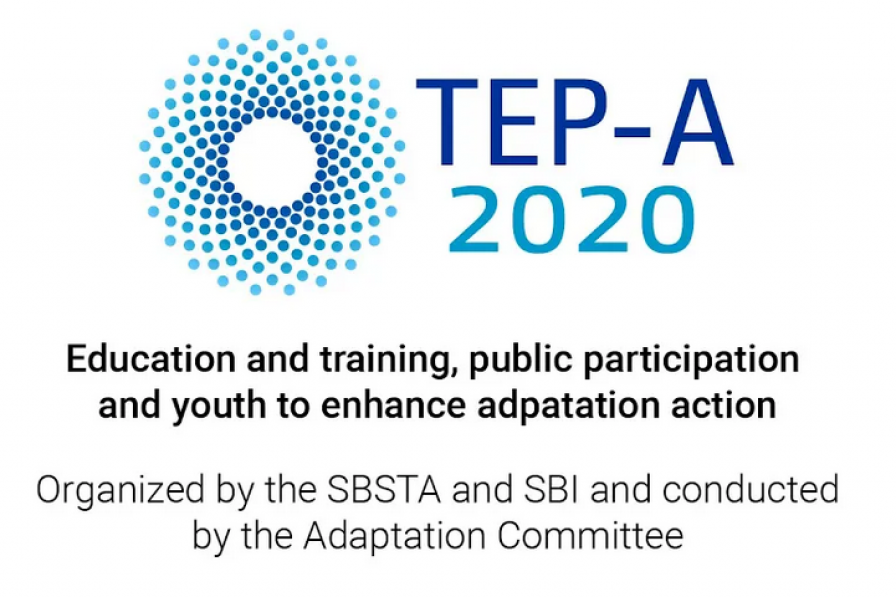
The 2020 TEP-A will be held under the topic of education and public training, public participation and youth to enhance adaptation action.
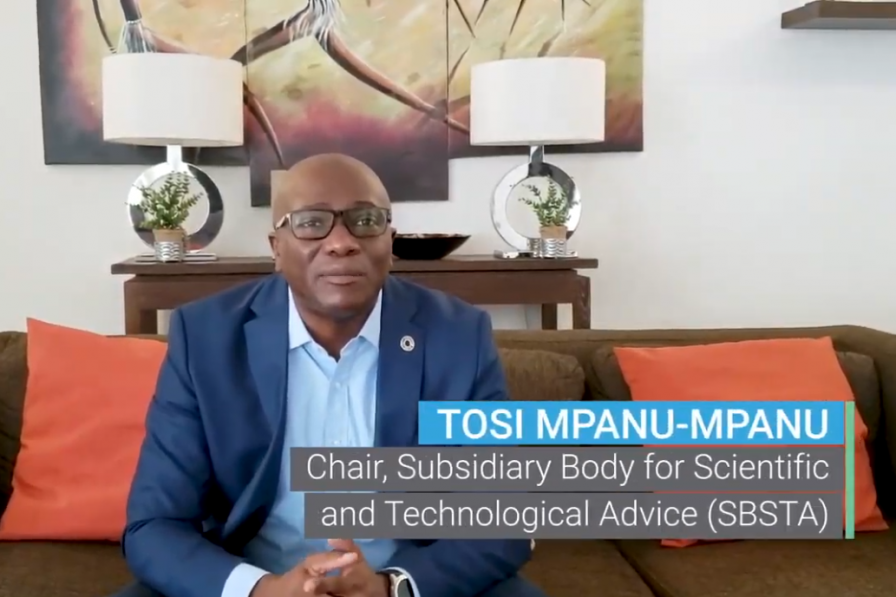
Tosi Mpanu-Mpanu (Democratic Republic of the Congo), Subsidiary Body for Scientific and Technological Advice (SBSTA) Chair
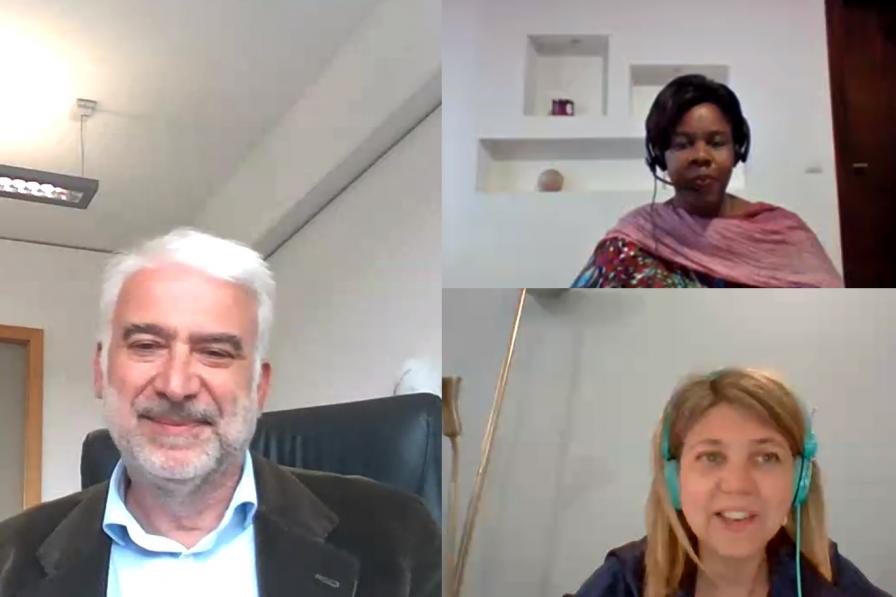
The 9th Durban Forum is closed by Daniele Violetti, UNFCCC Secretariat (left), Co-Facilitator Edith Ofwona Adera, International Development Research Centre (top right), and Co-Facilitator Roberta Ianna (Italy), Paris Committee on Capacity-building (PCCB) Member (bottom right).
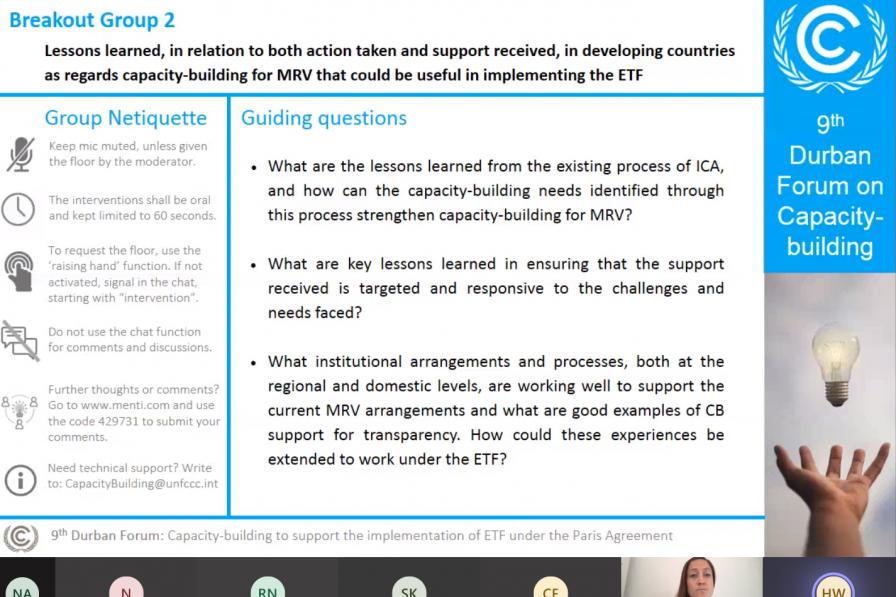
Participants of the Durban Forum engage in facilitated breakout discussions. Group 2 discusses useful lessons learned from measuring, reporting and verification (MRV) capacity building for the Paris Agreement’s enhanced transparency framework (ETF).
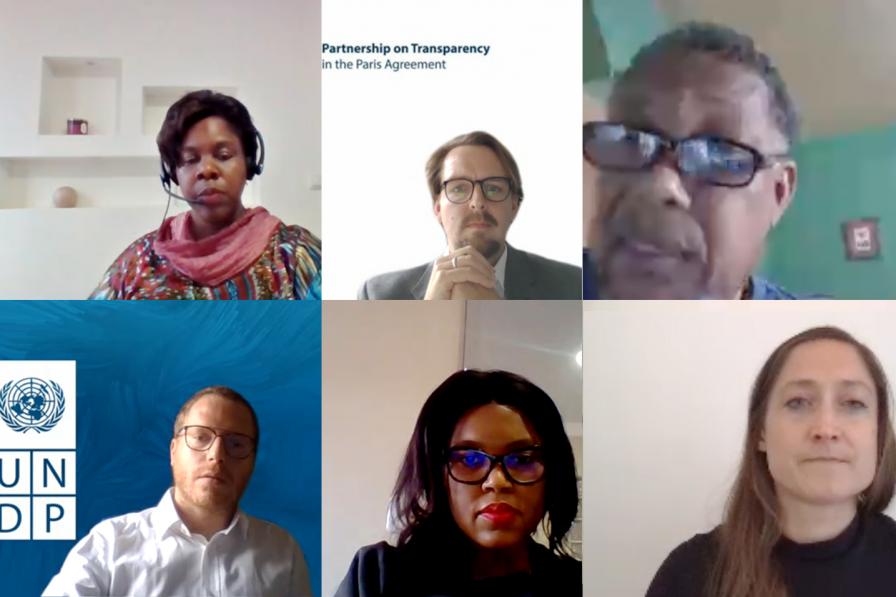
Clockwise from top left: Co-Facilitator Edith Ofwona Adera, International Development Research Centre; Fabian Klemme, Partnership on Transparency in the Paris Agreement (PATPA-GIZ); Clifford Mahlung, (Small Island Developing States, SIDS, negotiation group); Juliet Meredith (UK), Incoming COP Presidency; Sandra Motshwanedi (South Africa); Damiano Borgogno, UN Development Programme (UNDP).
